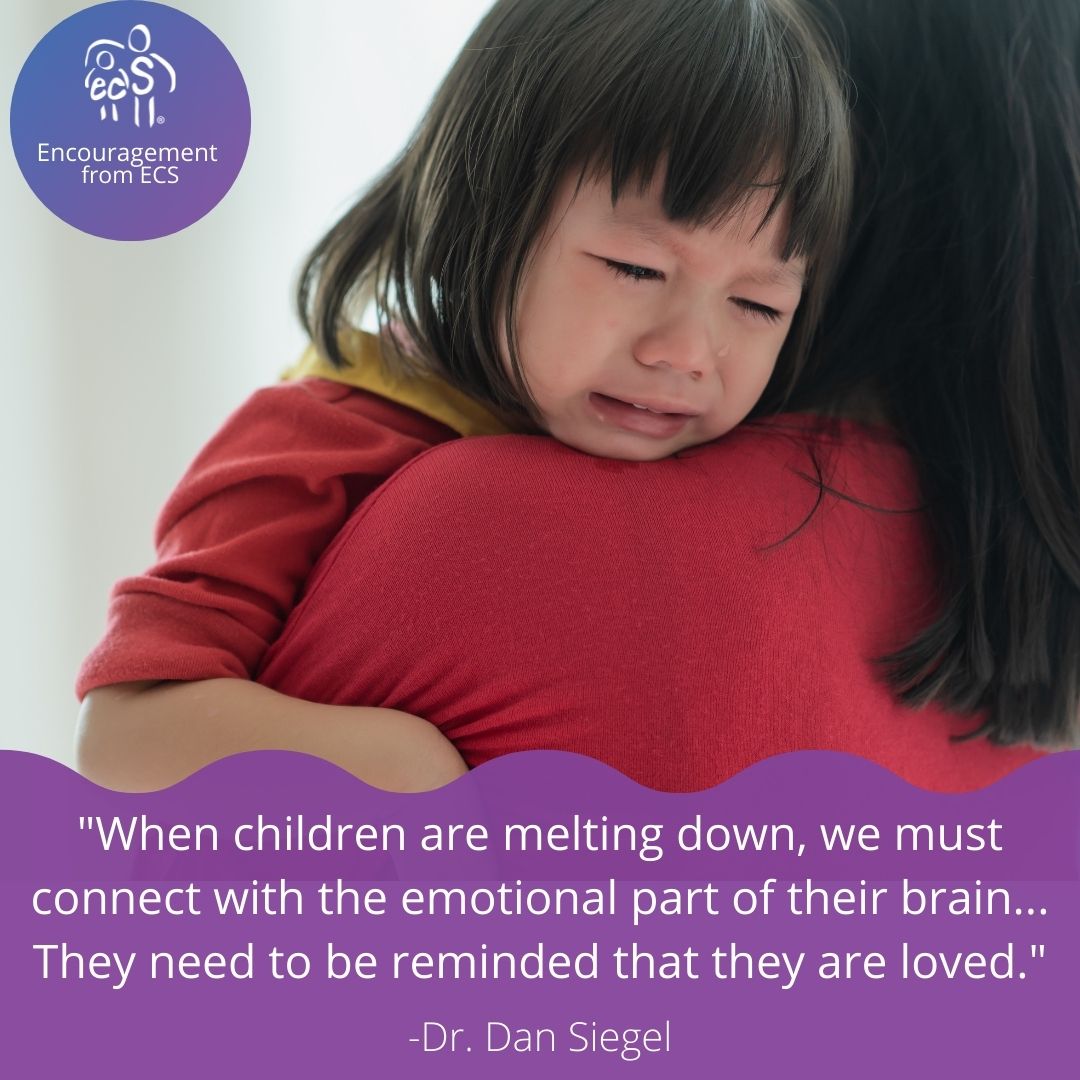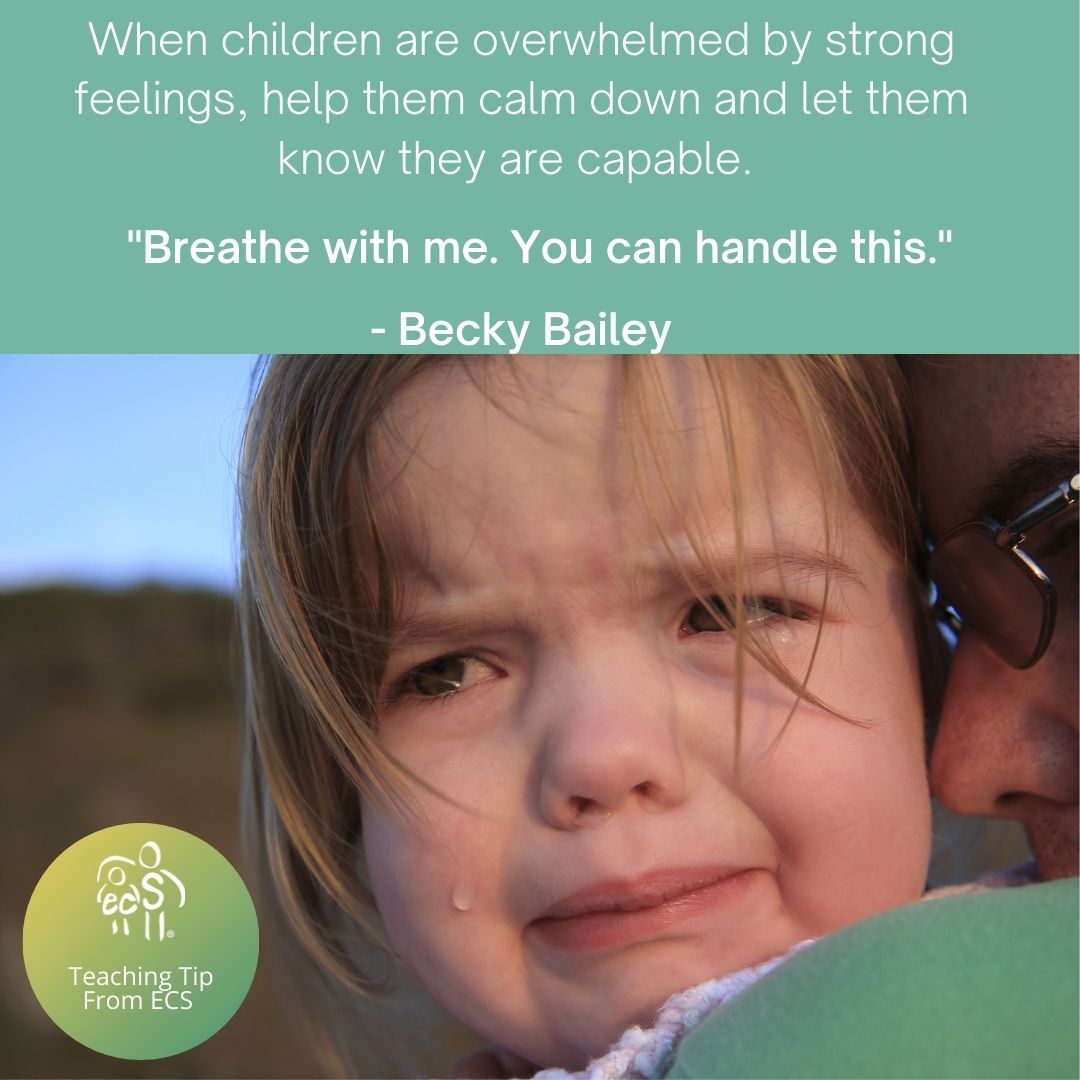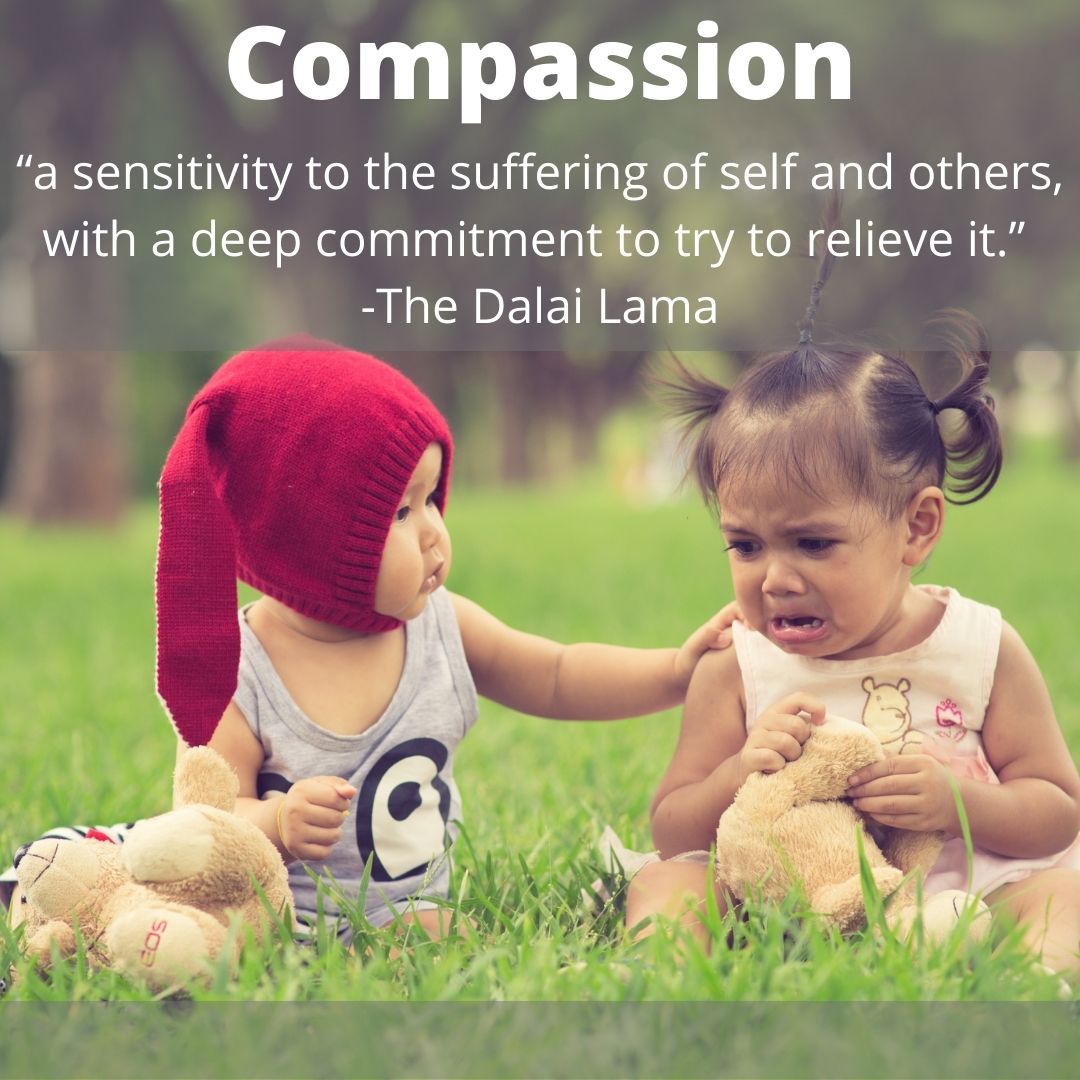|
When young children are upset, they usually need help from adults to calm down. And the more upset they are, the more help they need! When children are distressed, acting out, or having a tantrum or a meltdown, they don't often know what to do. Sometimes as adults we don't know what to do, either! We may try distraction ("Look at this book"), reassurance ("You're okay"), questioning ("Why are you crying?), reasoning ("We have to clean up so we can have our snack") or consequences ("You need to be by yourself until you can calm down"). Unfortunately, these efforts don't always work as well as we'd like. Brain research and experts in child development, psychology and psychiatry show us a better way (1, 2, 4, 7). To handle their upset, children need three things from adults: Connection, help with calming, and to be treated with empathy and compassion. In my Framework of Emotional Support, I call these the 3 C's of co-regulation. (Co-regulation is the set of the adult strategies we use to help children manage overwhelming emotions.) Let's look at strategies for each of the 3 C's of co-regulation: 1. Connection
2. Calming
3. Compassion
After giving empathy, show compassion by offering to help the child deal with the feeling. Let them know "I'm here to help." Your job is to help them deal with the feeling, not to "give in" to what the child wanted that started their upset. I hope these strategies help you support upset children with the 3 C's of connection, calming, and compassion. Later, when children are calm and ready to learn, we can provide the other support they need. I call it capacity-building of self-regulation: We can build their capacity for self-regulation and resilience. We do this by teaching them what to do instead and by applying other strategies and environmental supports to help them handle future challenges. Watch for the next blog post for information about this fourth "C". References and Resources:
0 Comments
|
AuthorI'm Diane Goyette, a Child Development Specialist, Trainer, Consultant and Keynote Speaker. I'm excited to share my blog! Archives
August 2023
Categories
All
|
|
Ways to Contact Us:
Schedule an Appointment |
|
Follow earlychildhoodspecialties for encouragement, teaching tips and more!
|
Follow eepworm for child-friendly posts!
|
© 2013-2024 Early Childhood Specialties LLC. All rights reserved.




 RSS Feed
RSS Feed